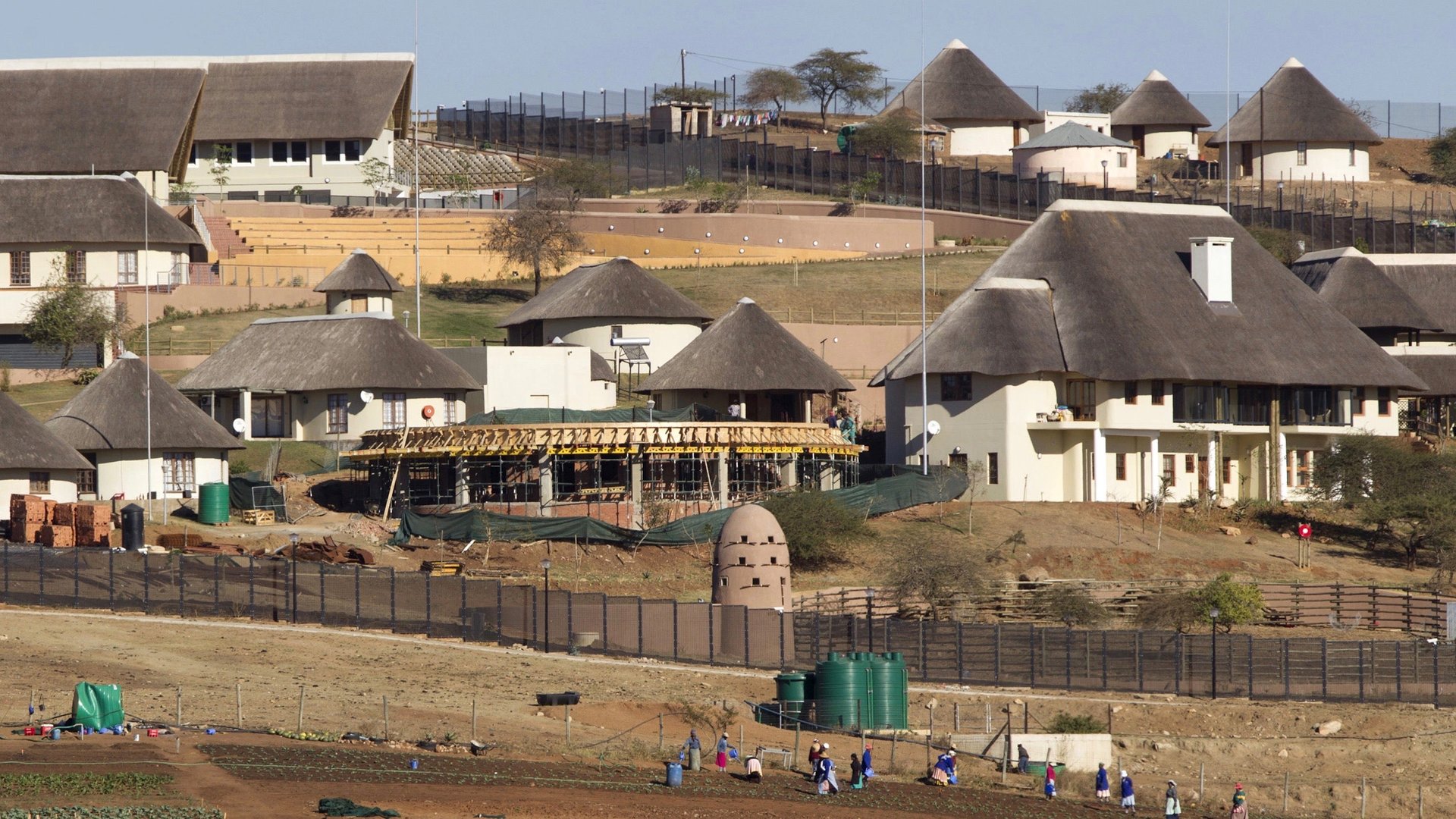South Africa’s president finally paid back $540,000 the state used to renovate his private home
South Africa’s President Jacob Zuma took out a second mortgage to pay back state funds used to upgrade his sprawling family homestead. On Sept. 12, Zuma’s office issued a statement saying the president paid back the more than 7 million rand, around $540,000, in line with a court ruling earlier this year that found that he flouted the constitution by building his private home with public funds.


South Africa’s President Jacob Zuma took out a second mortgage to pay back state funds used to upgrade his sprawling family homestead. On Sept. 12, Zuma’s office issued a statement saying the president paid back the more than 7 million rand, around $540,000, in line with a court ruling earlier this year that found that he flouted the constitution by building his private home with public funds.
The renovations, explained as security upgrades, cost more than $20 million. Zuma was only required to pay back money for non-security features. The presidency said Zuma raised the money through a home loan from the VBS Mutual Bank because it was one of few banks willing to extend loans for homes built on land owned by traditional rulers like chiefs and tribal kings. Zuma’s homestead in Nkandla in the KwaZulu-Natal province, is built on land owned by a trust belonging to King Goodwill Zwelithini and the Zulu Royal Family.
Until Zuma’s statement, most South Africans had never heard of VBS Mutual Bank. Established in 1982, the institution first operated as the Venda Building Society, servicing the Venda tribe in the Limpopo province. Today, three of the bank’s four branches are in this northernmost province. Last year, the bank had a record profit of just over a million rand (about $70,000) and VBS Mutual’s year-end capital amounted to 38.6 million rand or $2.6 million, according to its 2015 financial report (pdf).
The money was paid to South Africa’s Reserve Bank, but the main opposition party, the Democratic Alliance, demanded a proof of payment. The second largest opposition party, the Economic Freedom Fighters, said it will “seek clarity” on how a bank that was meant to benefit ordinary people in an impoverished region came to the president’s rescue. It was the opposition parties who pursued the case to South Africa’s highest court.
“It is important that the president provides proof to the National Assembly, which he is accountable to, that he personally paid the R7.8m, and that the VBS Mutual Bank is not a front,” said Democratic Alliance leader Mmusi Maimane. “The president has a history of tapping into his circle of cronies for funds.”
Zuma began renovating his private residence as security upgrades soon after he came to power in 2009. Today, the homestead resembles a small village with multiple homes for his wives, children and staff. It also sports a large swimming pool, amphitheater, visitors’ center, cattle kraal and chicken run—all features that were found to have nothing to do with security.